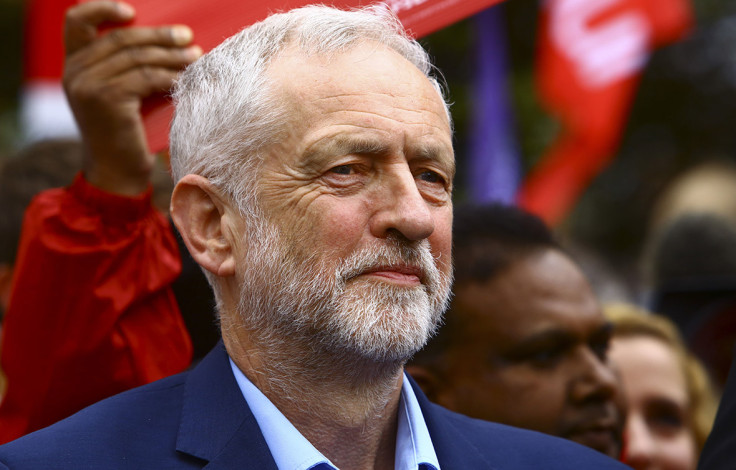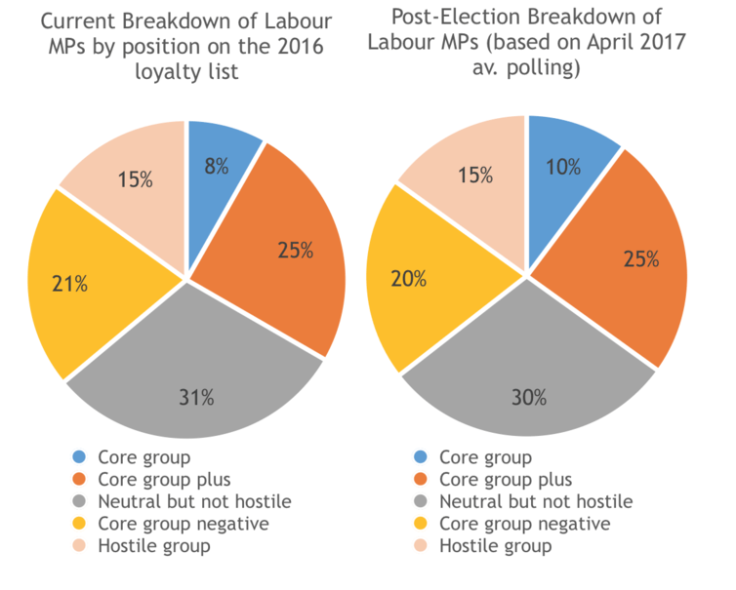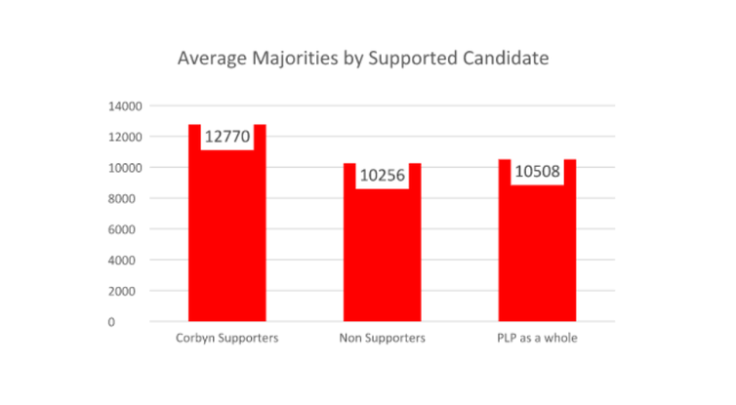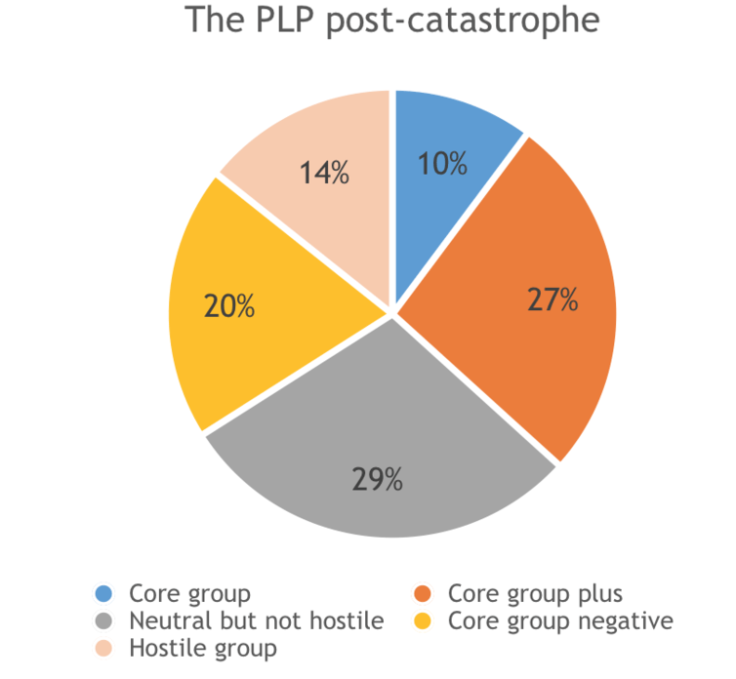Corbynism might not actually end – even if Labour loses the election
Electoral annihilation will not remove the Corbyn loyalist base in the Parliamentary Labour Party.

Because the general election looks set to produce an impressive win for the Conservatives, its main interest lies not in the result itself but in the result of that result. The House of Commons will look very different on 9 June, and the implications of that could turn out to be very big indeed. That's especially true for the opposition.
For Labour, heading for what many of its own people fear will be a very big defeat, it's all about who comes after Jeremy Corbyn. True, he may not step down immediately. But he is unlikely to stay for long after the party's first post-election conference in September.
There, Corbynistas hope to make a change to party rules that would make it much easier to get a left-wing successor into the contest to replace him. The aim is to require just 5% of MPs and MEPs to nominate candidates for leadership, instead of the current 15%. That would significantly shift the balance of power in these contests from parliament to party members.
There is also a possibility that those urging Corbyn to stay on would allow him to step down straight away if they could find a successor capable of getting 15% of MPs and MEPs to nominate them prior to any rule change, thereby triggering yet another summer leadership contest.
Second-guessing the composition of the post-election Parliamentary Labour Party (PLP), then, is more than just a parlour game. Indeed, it's no exaggeration to say that the question is an existential one.
If Labour's grassroots members are given the opportunity, and then take that opportunity, to elect a Corbyn clone, the bulk of the PLP might declare independence and set up a new party. They may then claim – perfectly legitimately, according to parliamentary convention – the role of Her Majesty's Loyal Opposition.
Parliamentary arithmetic
There has already been some speculation about what the PLP will look like after the election, most notably by one of Blair's biographers, John Rentoul.
Writing in The Independent, Rentoul makes a number of characteristically shrewd observations, not the least of which is to point out:
If Labour is heavily defeated on June 8, the number of MPs needed to reach the 15% threshold would fall. If the number of Labour MPs, 232 at the last election, fell to 150, any candidate would need the support of 26 MPs and MEPs to stand (because there are, until 2019, 20 Labour MEPs). In other words, precisely the number who supported Corbyn in his second leadership campaign.
We agree: there is an obvious arithmetical relationship between the size of the PLP and the number of MPs (and MEPs) needed to nominate a putative successor. So in the event of a Tory landslide, the Corbynistas will require fewer warm bodies on the green benches to get one of their number onto the ballot.
But what we're most interested in is John's follow-up point, namely that a truly woeful performance by Labour on 8 June will paradoxically help the PLP's left-wingers. It's an argument predicated on the assumption that, as he puts it, "naturally, Corbynites tend to be in safe Labour seats, so a catastrophic defeat for the party won't affect most of them".
Back in the autumn, we had a look at this for The Guardian. We found, first, that the majorities of MPs who were judged in a leaked email to be supportive by Corbyn's inner circle weren't much safer than those of their sworn enemies.
Second, we saw that when we plugged in the opinion poll standings of the parties, the ideological composition of the PLP didn't really change very much from what it was then: absolute numbers fell, but the proportions belonging to the pro-, anti-, and Corbyn-neutral MPs identified in the leaked email were very similar, if not identical.
Now the election has been called, we've run the exercise again – using today's polling average. And the song remains pretty much the same.

We can also move on from the leaked list of pro- and anti-Corbyn MPs and take a look at the average majority of the 23 MPs who, by our reckoning, backed Corbyn in last summer's contest – a figure, incidentally, that does not include Clive Lewis, who since seems to have departed the fold, and Steve Rotheram who we assume will leave the Commons after being elected Mayor of Liverpool City Region.
If we compare it to the average majority of all Labour MPs, we can see that Corbyn's backers in that contest do, just as Rentoul asserted, enjoy, on average, larger majorities, although whether the difference will automatically be big enough to save all of them is anyone's guess.

Finally, we can explore what would happen in what we'll call "the catastrophe scenario", which sees Labour reduced to around 150 seats – essentially the result that is emerging from polling by YouGov and The Sunday Times.
Again, the overall balance of power within the PLP isn't really changed. Corbyn-loyalists, opponents, and those termed "neutral" would still make up roughly one-third of the PLP each. Electoral annihilation, in other words, will not remove the Corbyn loyalist base in the PLP but nor will it significantly strengthen it.

Returning finally to the 23 MPs who supported Corbyn in 2016, we would expect only Cat Smith to lose her seat. That leaves 22 Corbynite MPs in the post-catastrophe Commons. Crucially, however, even if his previous supporters in the European Parliament come back on board, they will almost certainly fall just short of the required 15% threshold to get another Corbynista on the ballot paper.
This does indeed mean that literally a handful of new MPs could determine who leads the Labour Party after the election – either by lending the left sufficient numbers to nominate one of their own under the existing 15% threshold or, in refusing to do so, by making it essential that Corbyn cling on and the left achieve a reduction in that threshold.
Hence the manoeuvring now going on to parachute preferred candidates into supposedly safe seats. And hence why we should all be watching who makes it onto the Labour benches after 8 June very carefully indeed.
This article was originally published on The Conversation.
© Copyright IBTimes 2025. All rights reserved.





















